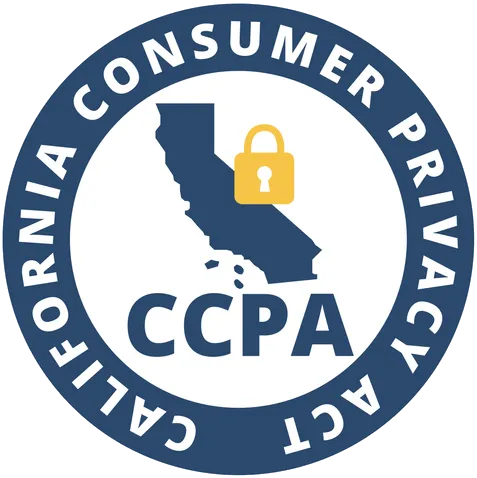Social media has become nearly ubiquitous in recruitment, with 84% of organizations using social media to recruit talent and 86% of job seekers using social platforms in their job search.[1] In fact, many recruiters conduct social media background checks as a standard part of hiring. According to a 2023 survey, 70% of employers admitted to screening candidates’ social media profiles during hiring, and 54% decided not to hire a candidate based on something they found online.[2]
What is a Social Media Background Check?
A social media background check involves reviewing a candidate’s publicly available online profiles to learn more about their personality, values, and suitability for your team. It can be done by employers, recruiters, or third-party screening agencies.
Key points:
- Always done with the candidate’s consent.
- Must comply with the Fair Credit Reporting Act (FCRA), Equal Employment Opportunity Commission (EEOC), and local privacy laws (like GDPR).
- Should use objective, consistent criteria to avoid bias.
Why Social Media Background Checks Matter
A bad hire can damage your brand, disrupt your team, and cost up to 33% of the employee’s first-year salary to replace.[4] You don't want to end up with a hire who looks great on paper but turns out to be a poor culture fit or a liability. Social media checks give you a clearer view of a candidate’s behavior, values, and communication style, helping you:
- Prevent expensive mis-hires
- Protect your culture and reputation
- Confirm skills and spot hidden strengths
Tools for Conducting Social Media Background Checks
1. Experian Social Media Checks

Experian offers GDPR-compliant social media screening services that utilize AI technology to assess a candidate's online behavior objectively. The results are presented in easy-to-interpret reports, helping employers make informed decisions while maintaining candidate trust.
2. The Access Group – Web and Social Media Checks
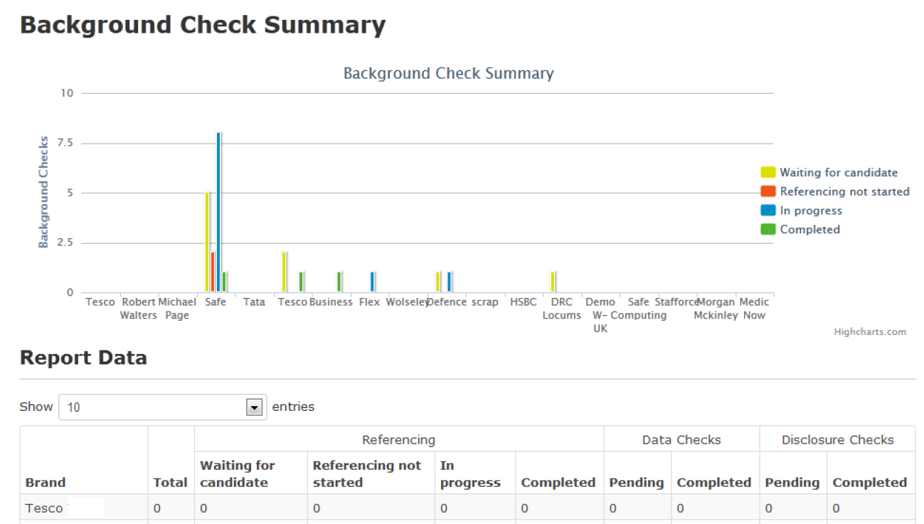
The Access Group provides tools that evaluate an individual's broader online presence, including social media profiles and other publicly available web content. These checks offer deeper insights into a candidate's alignment with company culture and values.
3. DISA Global Solutions
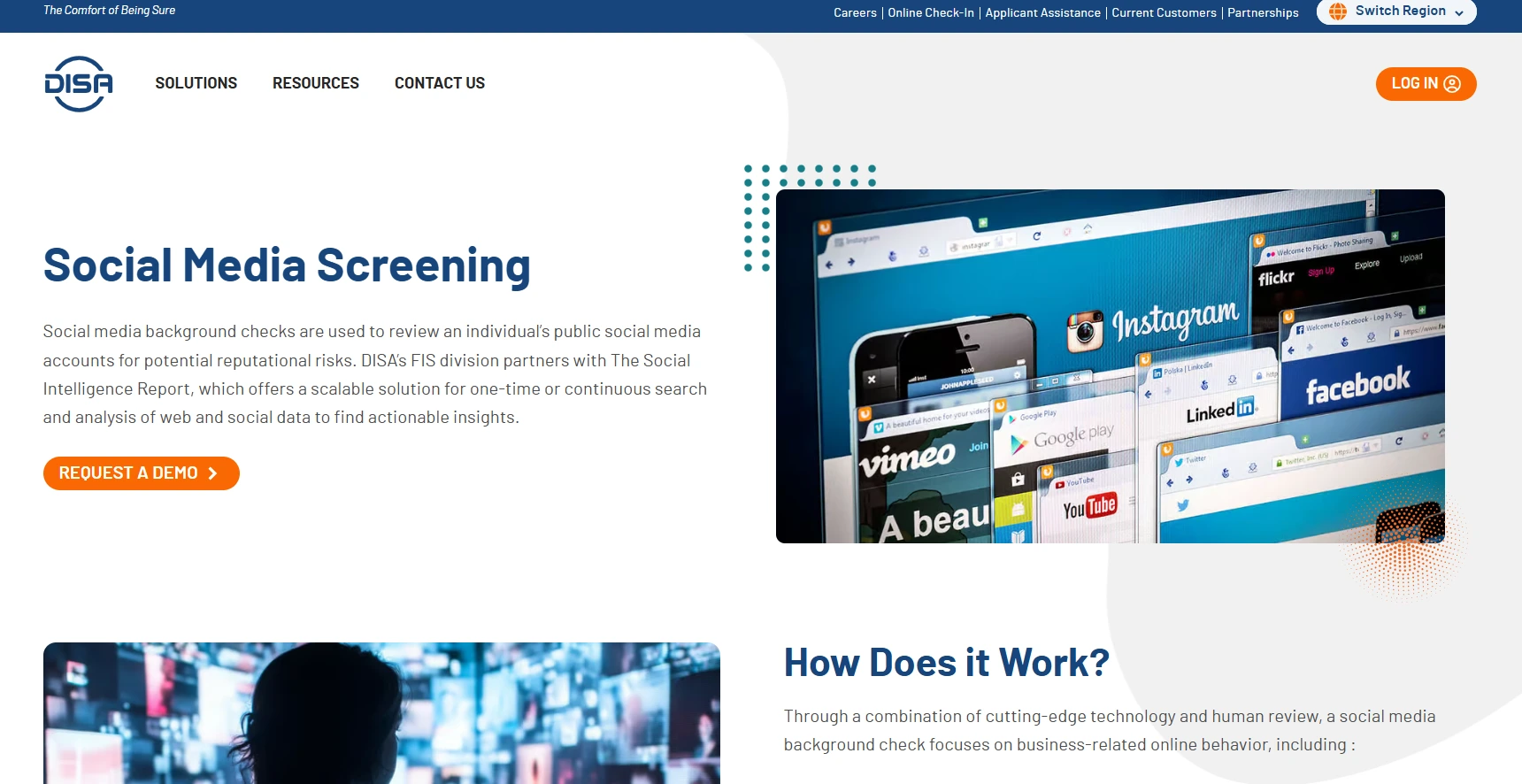
DISA offers social media background check services that help employers identify potential risks by analyzing candidates' online activities. Their services are designed to ensure compliance with legal standards and protect the company’s reputation.
4. HiBob
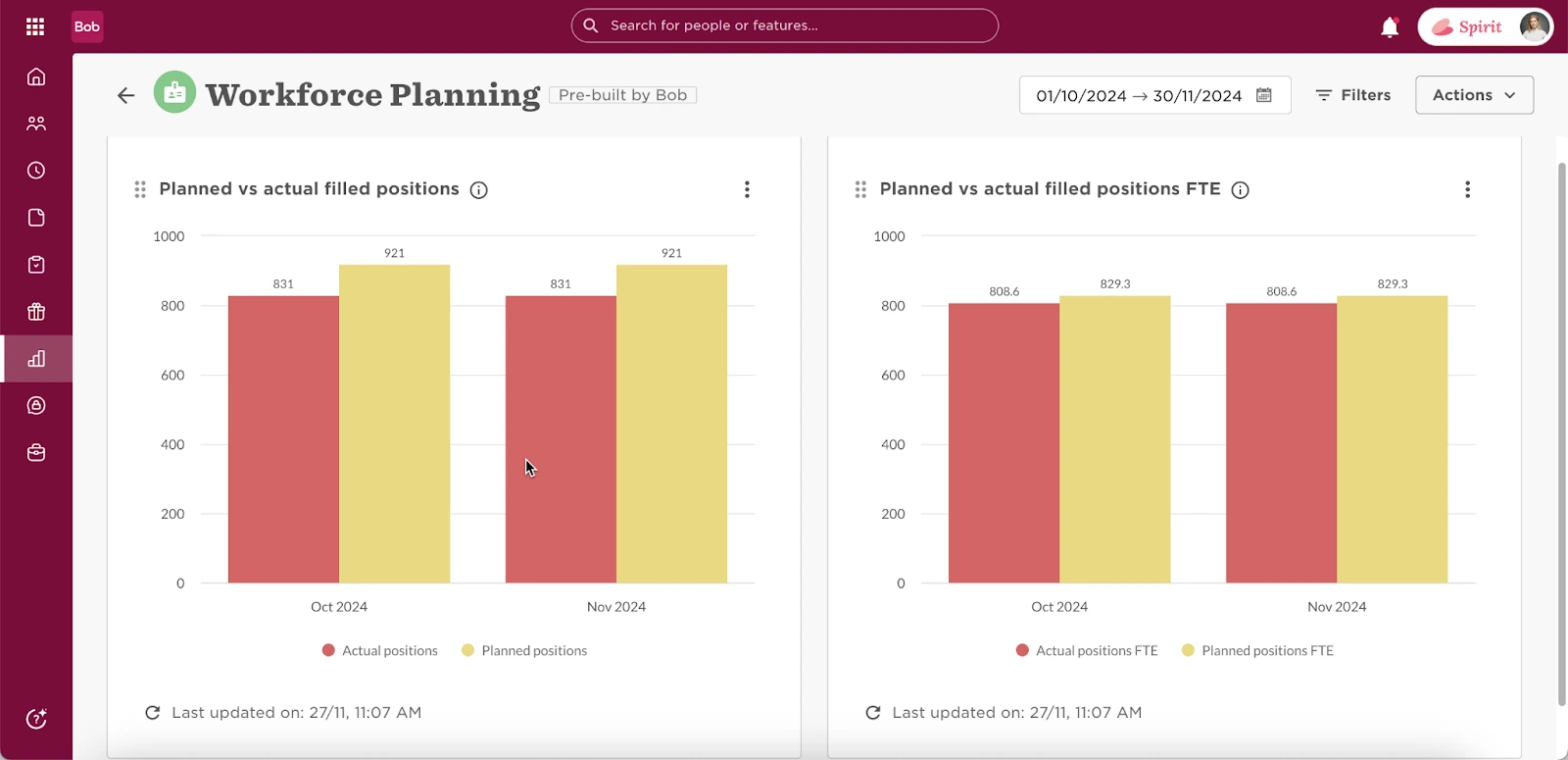
HiBob integrates with background screening providers such as Zinc and Veremark, enabling social media background checks as part of broader vetting processes. This allows companies to perform comprehensive online behavior assessments within their existing HR workflows, while supporting compliance and data protection requirements.
5. BambooHR
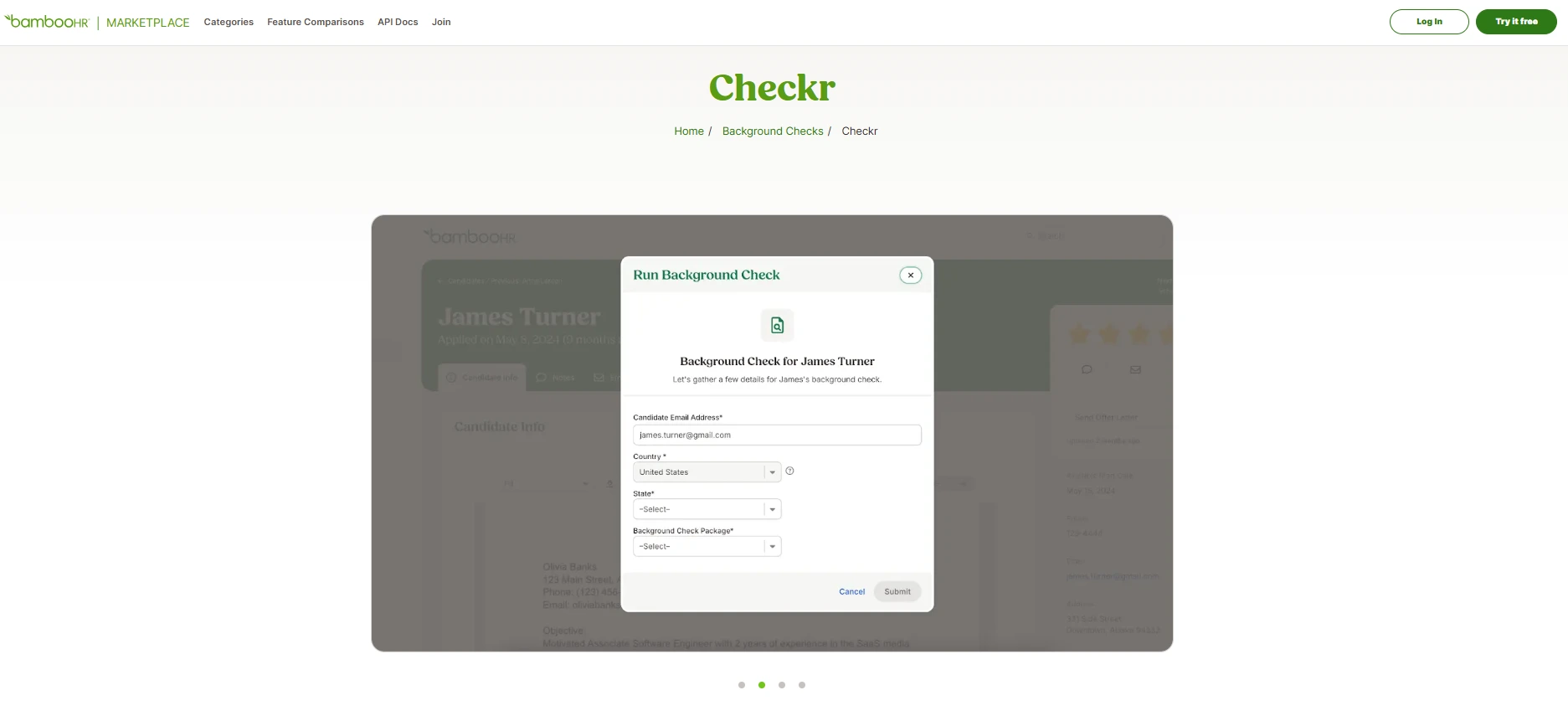
BambooHR facilitates social media background checks through integrations with providers like Checkr, Backgrounds Online, and Verified First. These partners offer tailored screening services, including social media analyses, directly linked to BambooHR's employee lifecycle management platform.
Manatal integrates with both HiBob and BambooHR, allowing you to manage applicant tracking, onboarding, and social checks all in one system. This keeps candidate data consistent and screening results easily accessible.
{{cta}}
How to Perform Social Media Background Checks
1. Obtain Consent
Always inform candidates that you plan to review their social media as part of your screening process. Get written permission to ensure transparency and to comply with privacy or employment laws in your jurisdiction.
Include a clear clause in your application form or consent letter:
“As part of our recruitment process, we may review publicly available online information, including social media profiles, to help assess fit for the role. By signing below, you consent to this review.”
Below is a sample consent form to ensure transparency and compliance when conducting social media background checks.
Social Media Background Check Consent Form Template
Company Name: [Your Company Name]
Address: [Your Company Address]
Contact: [HR Contact Email or Phone]
Date: [Insert Date]
Purpose
As part of our recruitment process, [Your Company Name] may review publicly available information on social media platforms and other online sources to assess your suitability for the position of [Job Title]. This review helps us gain a better understanding of your professional background, interests, and alignment with our company values. The process complies with applicable laws, including the Fair Credit Reporting Act (FCRA), Equal Employment Opportunity Commission (EEOC) guidelines, and other relevant local regulations.
Scope of Review
We will only review publicly available information on platforms such as LinkedIn, X, Instagram, or other relevant sites. We will not attempt to access private accounts, request login credentials, or review non-public content. The information gathered will be evaluated based on job-relevant criteria, such as professionalism, industry engagement, and cultural fit.
Candidate Consent
By signing below, I, [Candidate Full Name], authorize [Your Company Name] to conduct a review of my publicly available social media profiles and online content as part of the hiring process for the position of [Job Title]. I understand that:
- The review will focus solely on publicly available information.
- The findings will be used to assess my suitability for the role in a fair and objective manner.
- I will have the opportunity to discuss or clarify any findings during the recruitment process.
- My personal information will be handled in accordance with [Your Company Name]’s privacy policy and applicable data protection laws.
I confirm that I have been informed of the purpose and scope of this social media background check and provide my consent voluntarily.
Candidate Name: _____________________________
Signature: _____________________________
Date: _____________________________
Company Representative Name: _____________________________
Signature: _____________________________
Date: _____________________________
Contact Information
If you have questions about this process or wish to withdraw your consent, please contact [HR Contact Name] at [HR Contact Email or Phone].
Note: This form is a template and should be reviewed by your legal team to ensure compliance with local employment and privacy laws, such as GDPR, PIPEDA, or other applicable regulations.
2. Determine Relevant Platforms
Identify which platforms are most meaningful for the role.
- For creative roles, platforms like Instagram, YouTube, or Behance might show portfolios.
- For tech roles, GitHub activity can reveal practical skills.
- LinkedIn is widely used to verify professional history.
Focus only on platforms where candidates publicly share content.
3. Conduct the Search
Use the candidate’s full name, common usernames, and email addresses in search engines (with quotation marks for precise results). Look for profiles that match known details (location, past companies).
Tip: If you find conflicting profiles, save links for clarification during interviews.
4. Review Public Content
Check posts, comments, photos, and interactions visible to the public. Look for:
- Professional alignment: Do they engage with industry content?
- Potential concerns: Offensive language, discriminatory remarks, or excessive negativity about employers.
Example Scenario:
You’re hiring a customer success manager. On Facebook, the candidate frequently posts rants about “dealing with clueless customers.” That could indicate risk for a customer-facing role.
5. Document and Contextualize
Keep objective notes. Record only observations relevant to the job, avoiding assumptions based on personal lifestyle choices that aren’t job-related.
6. Watch for Bias and Legal Compliance
Avoid judgments based on protected characteristics such as race, religion, age, or sexual orientation. Always align with laws like the Fair Credit Reporting Act (FCRA) in the U.S., or similar local regulations.
Checklist of What to Watch and Look For
While many candidates’ social media profiles will reinforce positive impressions, some behaviors may signal risk. Use this checklist as a guide:
Red Flags to Watch For:
- Inconsistencies: Discrepancies between resume claims and public posts (e.g., listing one employer but posting daily from another company’s office).
- Badmouthing: Regularly insulting former employers, colleagues, or clients.
- Discriminatory or hateful remarks: Posts mocking or targeting people based on protected traits.
- Harassment or threats: Any engagement in bullying or violent threats.
- Glorifying violence: Sharing content that supports or jokes about harm.
- Substance abuse or illegal activity: Public admission or depiction of illegal drug use or criminal acts.
- Obvious unprofessionalism: Using slurs, bragging about breaking workplace rules, or overly hostile rants.
Note: Context matters. Something posted many years ago may not reflect current values. When in doubt, ask clarifying questions during interviews.
Green Flags to Look For
Not everything you find is a red flag. Social media can highlight many positive traits that reinforce a candidate’s fit for your team. Here are some encouraging signs to look for:
- Professional engagement: Liking, sharing, or commenting on industry news or posting thoughtful content related to their field suggests passion and commitment.
- Creativity and initiative: Sharing side projects, articles, design portfolios, or volunteer work shows drive beyond basic job duties.
- Positive interactions: Respectful discussions and supportive comments indicate strong interpersonal skills and emotional intelligence.
- Community involvement: Participation in professional groups, local organizations, or charity events reflects well on character and team spirit.
- Consistency with application: Social profiles that align with resume claims on roles, interests, and skills help confirm credibility.
Spotting these green flags can help justify moving forward with candidates or give you extra talking points for interviews.
Social Media Checks vs Traditional Screening Methods
Social media checks shouldn’t replace other standard methods. They complement them. Here’s a quick comparison:
Best practice: Use social media insights to supplement, not outweigh, verified credentials and direct conversations.
Best Practices for Social Media Background Checks
To make sure your process is fair, effective, and legally sound, follow these guidelines:
Get clear consent: Always inform and get agreement from candidates.
Focus on relevance: Only document and consider information that directly affects job performance or culture fit
Standardize your process: Use a consistent checklist to evaluate all candidates for the same role, reducing potential bias.
Respect privacy boundaries: Review only publicly available information; never try to access private accounts or require login credentials.
Separate reviewers when possible: Consider having a neutral HR team member conduct checks and pass along only job-relevant findings to hiring managers.
Keep records responsibly: Document what was reviewed and why decisions were made, in case questions arise later.
Stay updated on local laws: Regulations differ widely. Some countries or states restrict how social media data can be used in hiring.
Pros and Cons of Social Media Background Checks
Like any screening tool, social media background checks come with advantages and drawbacks. Understanding these can help you use them responsibly and effectively.
Pros
- Holistic view of candidates: Social media often reveals personal interests, communication styles, and attitudes, helping assess cultural fit more thoroughly than resumes or interviews alone.
- Identify potential risks early: You may catch warning signs such as discriminatory remarks or evidence of unprofessional conduct before making a costly hire.
- Verify skills and achievements: Candidates often share projects, articles, or community contributions that aren’t listed on their CVs, allowing you to spot hidden strengths.
- Speed and cost-effectiveness: Searching public profiles is relatively fast and doesn’t carry extra direct costs, unlike some formal checks.
Cons
- Risk of unconscious bias: Seeing a candidate’s personal life may unintentionally influence decisions based on irrelevant factors, such as lifestyle or political views.
- Privacy and fairness concerns: Overly invasive checks can cross ethical lines or violate local privacy laws, especially if you look beyond public data or fail to get consent.
- Information can be misleading or outdated: A single post taken out of context—or an old opinion that no longer reflects a candidate’s values—could unfairly impact their chances.
- Potential legal pitfalls: If not conducted in line with laws such as the FCRA or EEOC guidelines (or equivalents in your country), you risk discrimination claims or other legal consequences.
Best practice: Always balance the insights gained against these risks, keeping reviews structured, relevant, and compliant.
Trends in Social Media Background Checks for Recruiters
As social media platforms evolve, they are reshaping how recruiters approach talent acquisition and candidate evaluation. The use of social media background checks is growing, driven by technological advancements and the need for deeper insights into candidates’ professional and cultural fit. Below, we explore key trends shaping this practice and provide actionable guidance for recruitment leaders to stay ahead.
Expansion to Emerging Platforms
Recruiters are moving beyond traditional platforms like LinkedIn to include newer or niche platforms:
- Creative and Visual Platforms: Instagram, TikTok, and Behance are increasingly used to evaluate candidates for creative roles, such as design or marketing, where portfolios and personal branding are critical.
- Technical Communities: For tech roles, recruiters are analyzing GitHub contributions, Stack Overflow activity, or even Reddit discussions to assess coding skills and problem-solving abilities.
- Real-Time Engagement on X: X’s fast-paced environment allows recruiters to gauge candidates’ thought leadership and industry engagement through posts, replies, and interactions.
Actionable Tip: Identify platforms relevant to the role (e.g., Dribbble for designers, X for executives) and focus searches there to uncover job-specific insights.
AI and Automation in Screening
Artificial intelligence (AI) is transforming social media background checks by automating and refining the process:
- Sentiment Analysis: AI tools can analyze the tone of candidates’ posts to detect patterns, such as consistent negativity or professionalism.
- Keyword Flagging: Automated systems scan for red flags (e.g., offensive language) or green flags (e.g., industry expertise) across vast amounts of data.
- Integration with ATS: Tools like Experian and DISA are integrating with applicant tracking systems (ATS) to streamline checks and generate standardized reports.
Actionable Tip: Explore AI-driven tools like those offered by Experian or The Access Group, but ensure they comply with local regulations (e.g., GDPR, FCRA) to avoid legal risks.
Focus on Passive Candidate Sourcing
Social media checks are increasingly used to identify and evaluate passive candidates, those not actively applying but open to opportunities:
- Targeted Outreach: Recruiters use LinkedIn and X to find professionals engaging with industry content, signaling potential interest in new roles.
- Talent Pools: Platforms allow recruiters to build databases of potential hires based on their online activity, such as joining professional groups or sharing relevant projects.
Actionable Tip: Use Boolean search strings (e.g., “software engineer AND machine learning site:linkedin.com”) to pinpoint passive candidates with specific skills.
Heightened Emphasis on Cultural Fit
With remote and hybrid work environments, assessing cultural fit through social media is becoming critical:
- Values Alignment: Recruiters look for posts or interactions that reflect company values, such as community involvement or diversity advocacy.
- Team Dynamics: Social media activity can reveal interpersonal skills, such as how candidates engage in discussions or handle disagreements.
Actionable Tip: Create a rubric to evaluate cultural fit based on job-relevant criteria, ensuring consistency and reducing bias.
Navigating Privacy and Ethical Concerns
As candidates become more aware of social media checks, recruiters face growing scrutiny:
- Transparency Demands: Candidates expect clear communication about how their data is used, pushing recruiters to adopt explicit consent processes.
- Ephemeral Content Challenges: Platforms like Instagram Stories or Snapchat, where content disappears, complicate screening efforts, requiring real-time monitoring or alternative approaches.
Actionable Tip: Use the sample consent form provided in the “Obtain Consent” section to ensure transparency and build candidate trust.
Global Regulatory Shifts
With varying data privacy laws worldwide, recruiters must adapt to stricter regulations:
- GDPR in Europe: Requires explicit consent and limits the scope of data collection.
- PIPEDA in Canada: Emphasizes transparency and purpose limitation.
- U.S. State Laws: States like California (CCPA) impose restrictions on how personal data, including social media, is used.
Actionable Tip: Consult legal counsel to tailor your social media check process to local laws, and consider tools with built-in compliance features (e.g., The Access Group’s GDPR-compliant checks).
Candidate-Driven Push for Fairness
Candidates are increasingly vocal about fairness in social media screening:
- Contextual Evaluation: Recruiters are expected to consider the context of posts (e.g., age of content, cultural nuances) to avoid misjudgments.
- Feedback Opportunities: Candidates want chances to explain flagged content, such as outdated posts or misinterpreted humor.
Actionable Tip: Incorporate a step in your process to discuss flagged findings during interviews, fostering fairness and dialogue.
Practical Advice for Recruiters
To leverage these trends effectively:
- Standardize Processes: Use consistent criteria across all candidates to ensure fairness and reduce bias. For example, create a checklist aligning with the red and green flags outlined earlier.
- Train Teams: Educate recruiters on spotting bias and interpreting social media content objectively, using real-world scenarios.
- Stay Updated: Follow HR thought leaders on X or subscribe to resources like SHRM to keep abreast of evolving tools and regulations.
- Balance Insights: Combine social media data with traditional methods (e.g., interviews, references) to form a holistic view of candidates.
Conclusion
Conducting thorough background checks on candidates is a key step in the hiring process. Social media can serve as a valuable tool to gain deeper insight into a candidate's personality, values, and professionalism. However, it is important to approach social media background checks with caution and consideration for privacy and discrimination issues. Before conducting such checks, it is essential to establish clear guidelines and policies and ensure that the information gathered is relevant to the job in question. Incorporating social media background checks into the recruitment process responsibly helps you make more informed hiring decisions and ultimately build stronger, more successful teams.
FAQs on Social Media Background Checks
Q: Is it legal to look at candidates’ social media?
A: Employers can review candidates' public social media profiles as part of the hiring process, but must carefully navigate legal issues such as discrimination and privacy rights. In the U.S., compliance with laws like the Fair Credit Reporting Act is necessary, especially when using third-party services. Employers should avoid learning about protected characteristics and implement policies and training to ensure legal and ethical hiring practices.
Q: Can recruiters look at a candidate’s private social media profiles?
A: Recruiters can legally view any public information on a candidate's social media profiles for background checks, but accessing private profiles without permission violates privacy rights and ethical standards. Candidates should ensure their public profiles are professional and be cautious of the information they share. Both recruiters and job seekers are advised to respect privacy boundaries.
Q: What if a candidate deletes social media posts after recruiters start screening?
A: Deleting social media posts during a recruitment process might raise red flags for recruiters, who could see it as a lack of transparency or authenticity. While candidates are encouraged to maintain a professional online presence, sudden changes during job screenings may make recruiters scrutinize their background more thoroughly. Despite these concerns, it's important to balance this perspective with the candidate's qualifications and potential for growth.
Q: What about “likes” or shares? Are they important?
A: Employers can gain valuable insights from a candidate's social media activity, such as their personal interests and values, which may indicate cultural fit and professionalism. However, it's important to interpret this information carefully to avoid making biased decisions based solely on social media interactions.
—
Citations





.png)














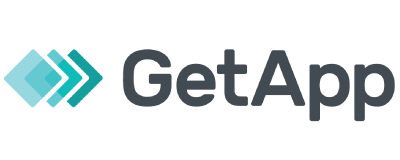







.webp)

.webp)
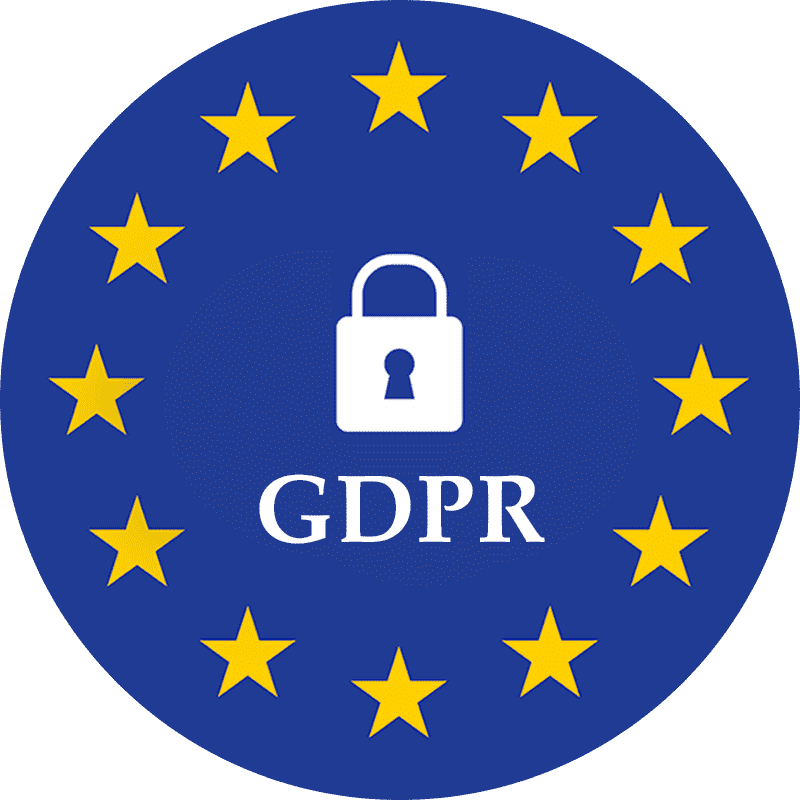
.webp)
